Elementary Phonics Worksheets Activities With Answers for Ages 5-8
12 filtered results
-
From - To
Discover our engaging Elementary Phonics Worksheets and Activities designed specifically for children ages 5-8. Our comprehensive resources help young learners develop essential reading skills through fun and interactive exercises. Each worksheet focuses on phonetic sounds, word recognition, and comprehension, fostering a solid foundation for language mastery. With answer keys provided for each activity, educators and parents can easily assess progress and provide immediate feedback. Enhance your child's learning experience with hands-on phonics activities that cater to varied learning styles, ensuring every child can thrive. Explore our collection today and watch your little ones become confident and proficient readers!
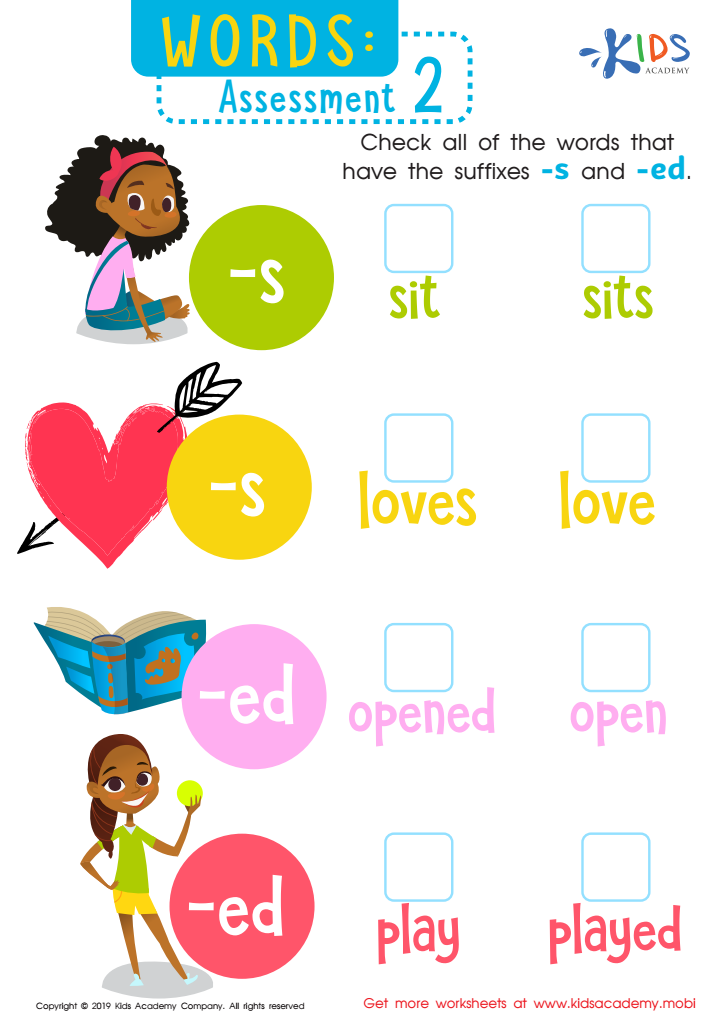

Words: Assessment 2 Worksheet
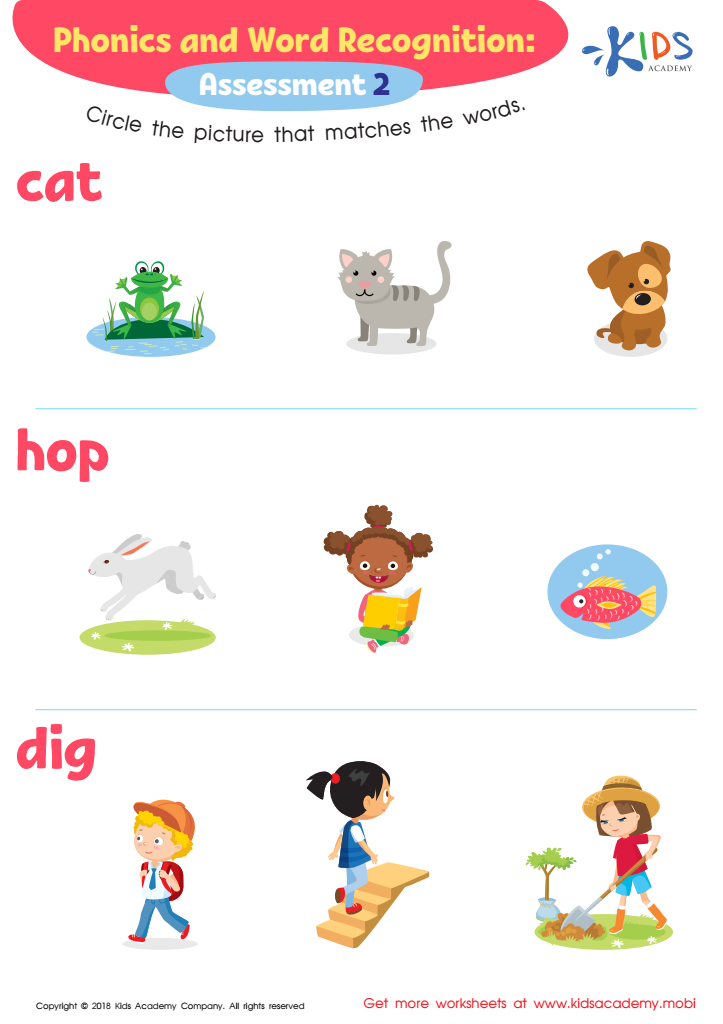

Phonological Awareness: Assessment 2 ELA Worksheet
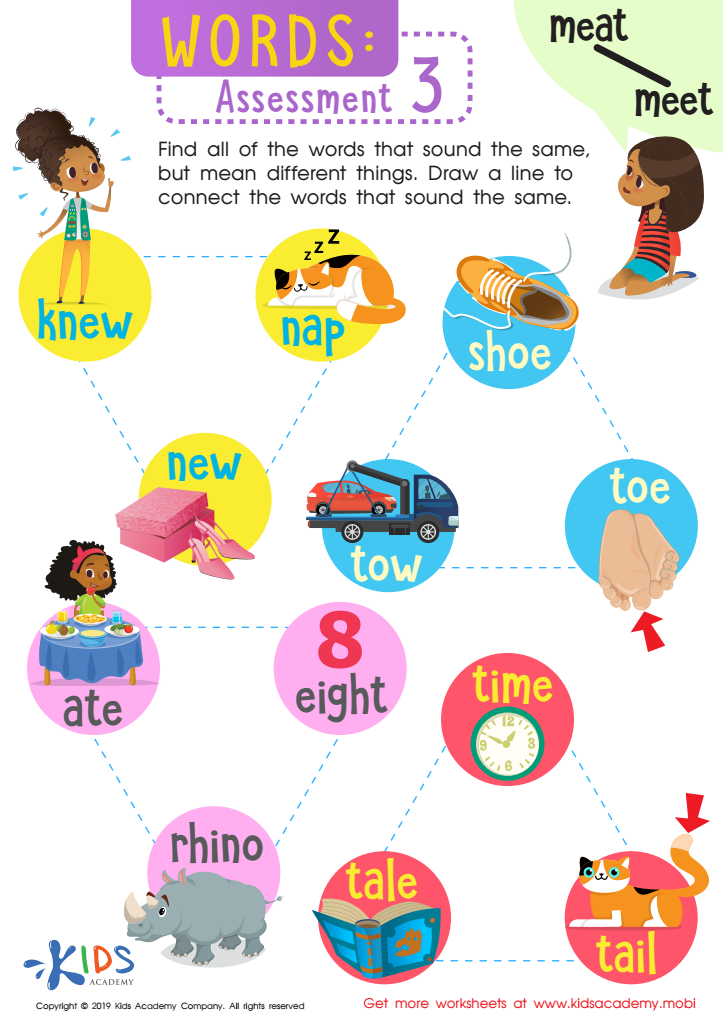

Words: Asessment 3 Worksheet
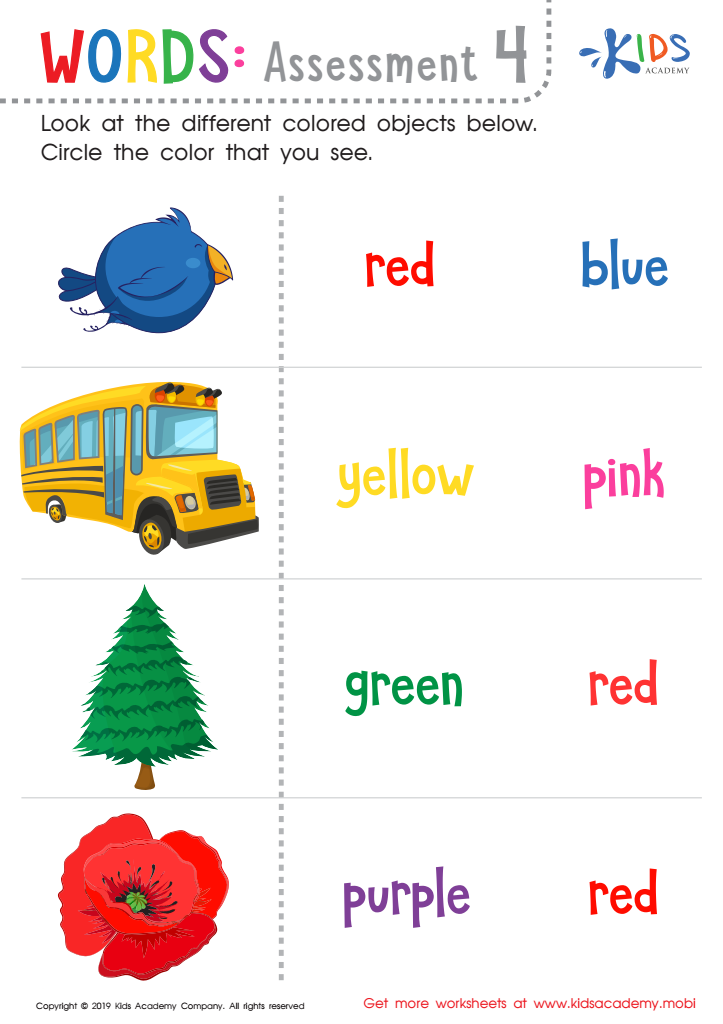

Words: Assessment 4 Worksheet
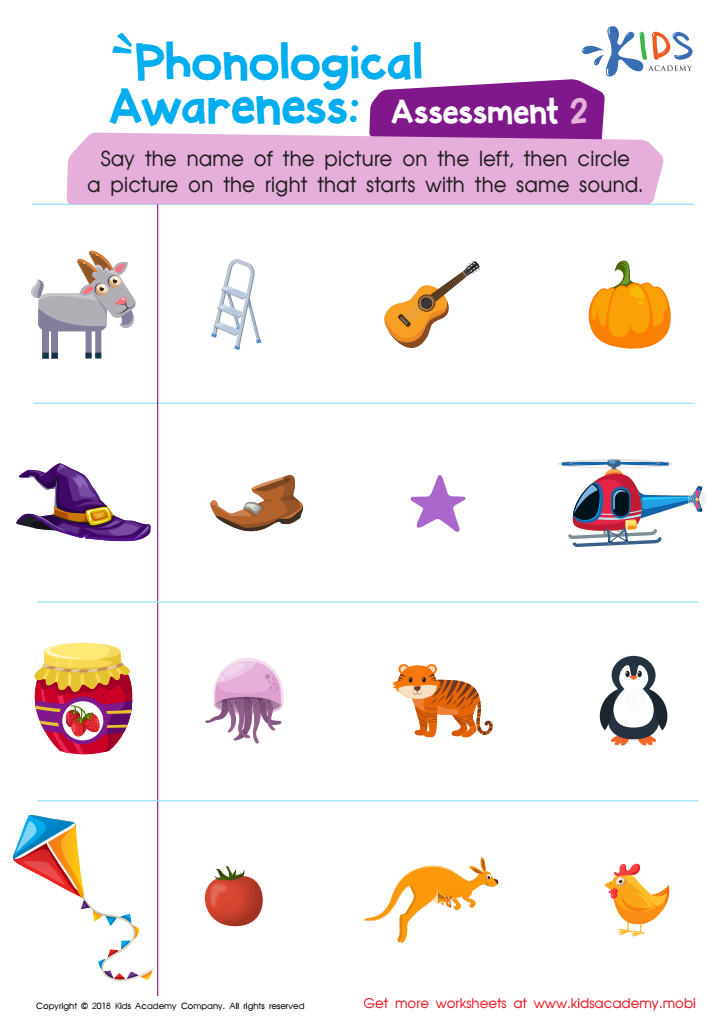

Phonological Awareness: Assessment 2 Worksheet
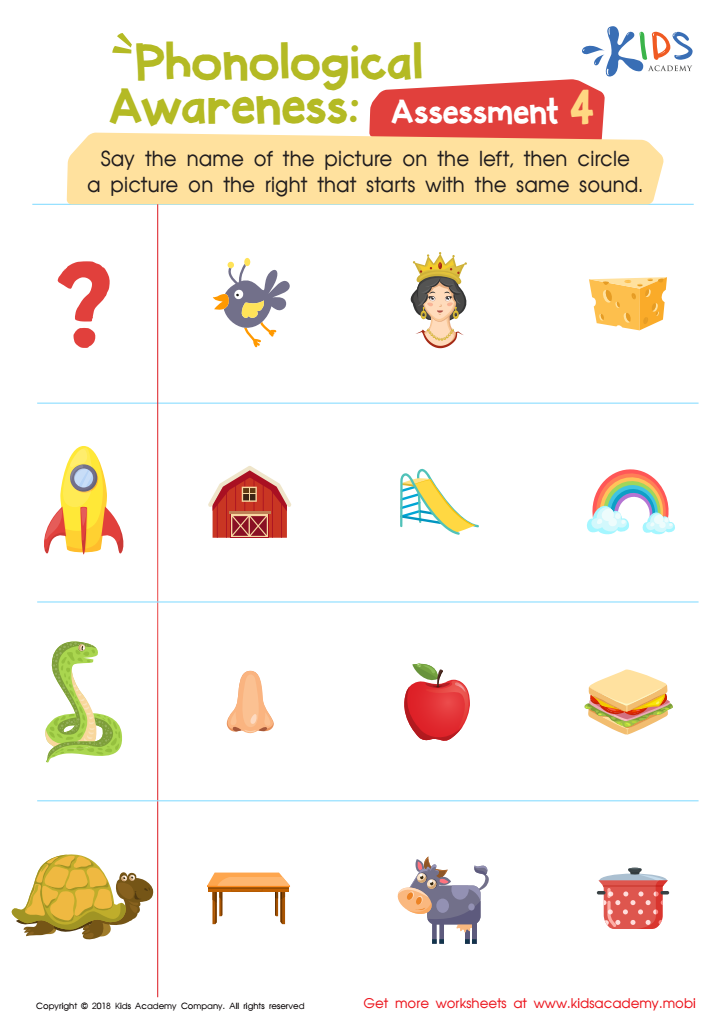

Phonological Awareness: Assessment 4 Worksheet
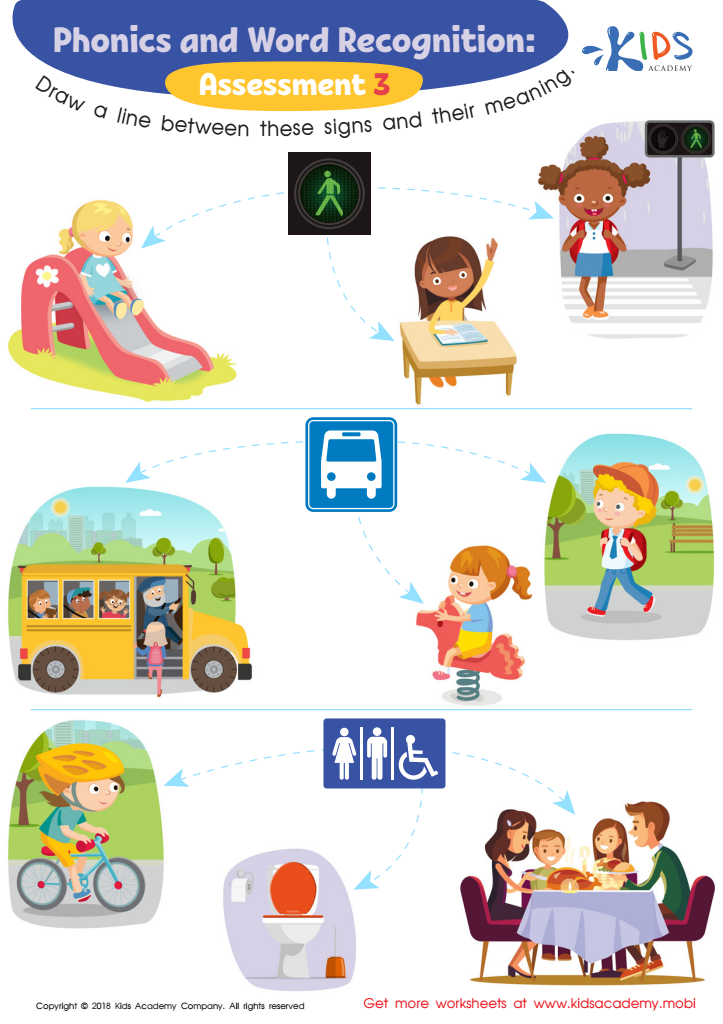

Phonological Awareness: Assessment 3 ELA Worksheet


Phonics and Word Recognition: Assessment 1 Worksheet
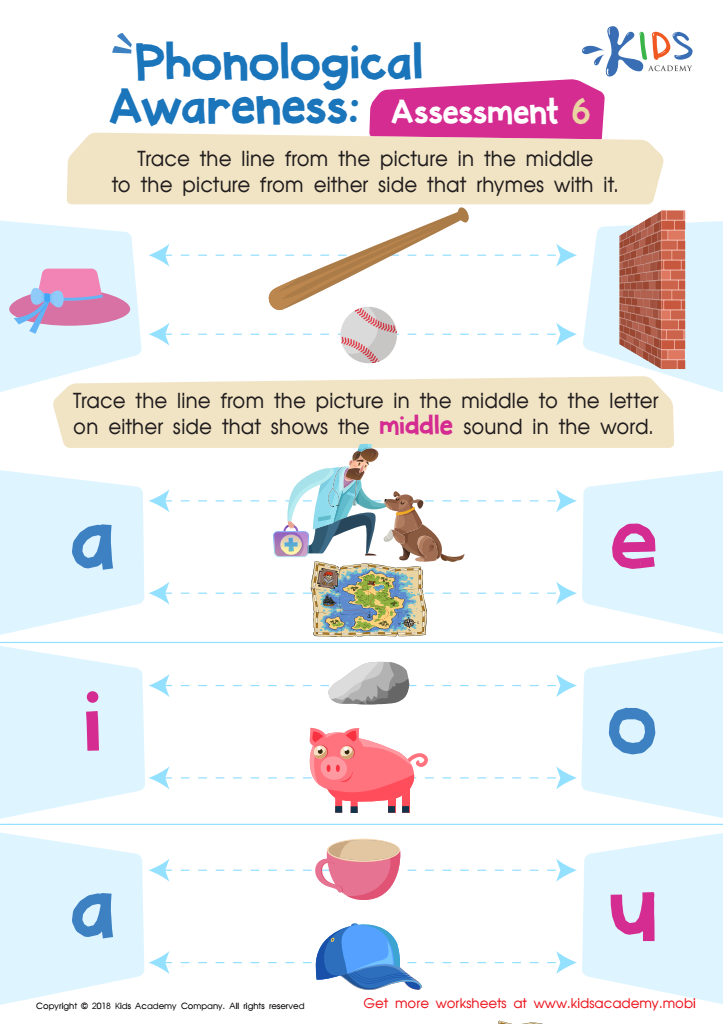

Phonological Awareness: Assessment 6 Worksheet
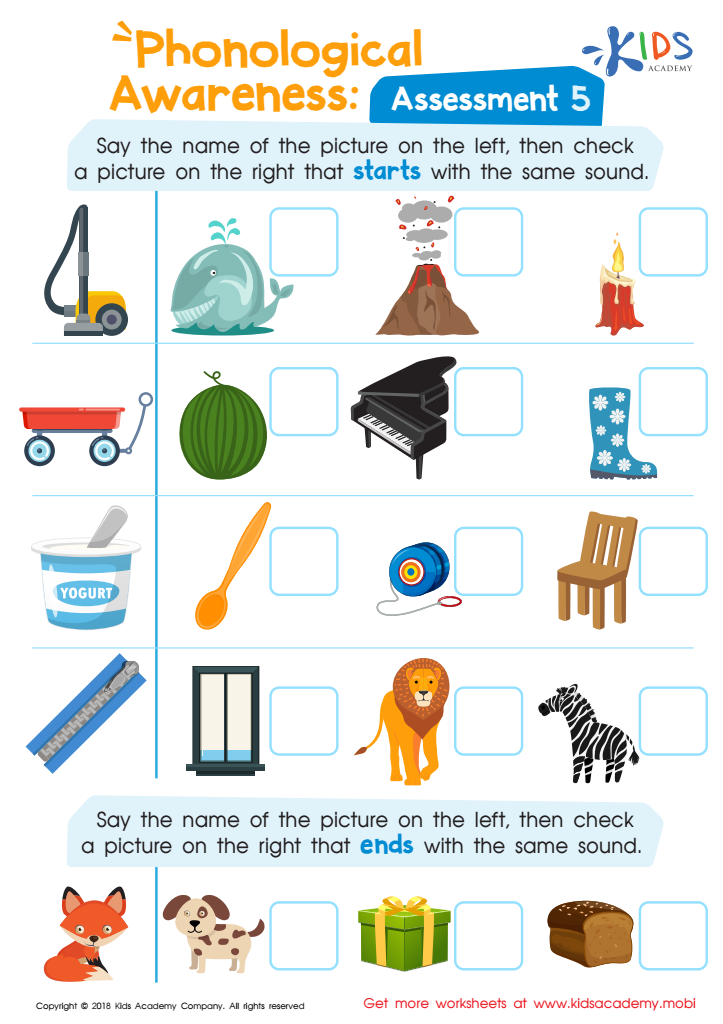

Phonological Awareness: Assessment 5 Worksheet
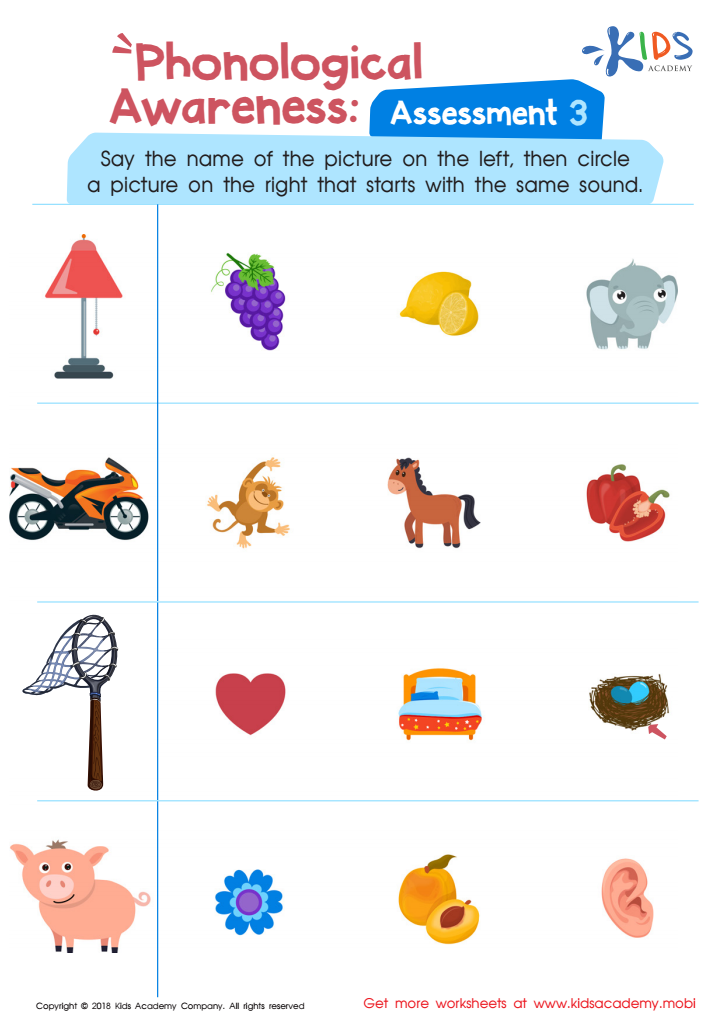

Phonological Awareness: Assessment 3 Worksheet


Phonological Awareness: Assessment 1 Worksheet
Parents and teachers should prioritize elementary phonics activities for ages 5-8 as they lay the foundational skills for reading and writing. Phonics teaches children the relationship between letters and their corresponding sounds, which is crucial for decoding words. Engaging in phonics activities enhances children’s ability to recognize patterns in words, identify sounds, and develop fluency, all of which contribute to improved literacy skills.
Moreover, interactive phonics activities make learning enjoyable, motivating children to participate actively in their education. Activities that incorporate games, songs, and hands-on approaches can spark curiosity and creativity, making the learning process more engaging and memorable. These tools not only aid comprehension but also boost a child's confidence in reading.
Additionally, phonics is instrumental in supporting children with diverse learning needs. Early intervention through focused phonics sessions can address potential reading difficulties, helping to ensure all students are equipped for academic success. Consequently, teachers and parents who emphasize phonics activities positively impact a child's literacy development, laying a strong groundwork for future learning. Ultimately, fostering these skills at a young age can not only improve reading proficiency but also instill a lifelong love of reading.
 Assign to My Students
Assign to My Students






.jpg)








